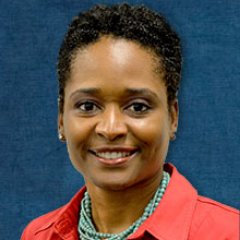
Anxiety, anticipation, uncertainty—all words that describe how educators (including me), students, parents and people across the globe are feeling during these uncertain times. As administrators, we were all aware of COVID-19 and its potential impact on our schools, but because of the nature of this pandemic, properly preparing just wasn’t an option.
As a high school principal facing the uncertainties of what COVID-19 meant for schools, I was left asking: “How do I help my staff be their best selves so they can be the best for our students? And how do we do this overnight?”
Working together
As educators, we naturally want to do what’s best for our students, and as principal of Lower Richland High School, I wanted to do what was best for my students as well as my staff. Leading a school of over 120 faculty and staff, I knew it was my responsibility to stay abreast of what was happening through local and national media outlets.
Read: Keeping up connections
Just 24 hours before the governor of South Carolina announced the mandatory school closings across our state, I began to anticipate what might happen and decided to open Lower Richland High on a Sunday afternoon to allow teachers a few extra hours to prepare—just in case. It was during that four-hour opening March 15 that we learned students would not be allowed to report to campus the next day, and that teachers would only have Monday to physically work in the building. As you can imagine, panic ensued.
We came together as a community, for our community, as part of our community.
As a leader, I knew it was necessary for me to remain calm, maintain a positive attitude, be a listening ear, and offer support as needed. I knew the next day’s arrival on campus would not be a “regular” Monday. To help lift spirits, I provided a few morning breakfast refreshments: fresh, homemade pecan cinnamon rolls that I prepared the night before; cereal bars; and yogurt. I knew my staff would need nourishment as they prepared to—literally overnight—switch from face-to-face instruction to online learning for students with Wi-Fi, and to prepare learning packets for the (too many) students who don’t have Wi-Fi access at home. If we were going to pull this off, I knew we needed to come together as a community—and what better way to do this than with a family breakfast?
Over the next four days, our community came together in astonishing ways. Our staff worked tirelessly to ensure that contact was made with students and parents. Our district-level administration coordinated drive-thru meal pickup as well as breakfast and lunch delivery for students who do not have transportation and rely on meals from school. Secretaries, staff, teachers, our school resource officer and the county deputy all joined together to distribute learning packets for students. We came together as a community, for our community, as part of our community.
Read: How K-12 districts are continuing to feed students through school closures
Providing ‘normalcy’
Though our students and teachers are not physically on campus (for an indefinite amount of time), we are able to provide students with various learning opportunities and experiences through a plethora of educational programs, computer software and digital platforms. Dual-enrollment students are continuing to complete their semester under the guidance of their college professors, so they will be able to earn their general certificates in May. We are now preparing to coordinate a drive-thru Senior Delivery Day for our seniors to safely pick up their much-anticipated graduation items.
Read: Updated: 56 free K-12 resources during coronavirus pandemic
Just like others across the nation, we are uncertain about May and June graduation ceremonies. We don’t know what the next week(s) or month(s) will look like. But we do know our seniors have worked hard for four years to have the opportunity to walk across that stage and receive their diplomas. We are determined to do all we can to lift our students’ spirits and give them as much normalcy as possible by still delivering hard-earned graduation items as promised. Our students deserve it.
Ericka R. Hursey, an educator for over 24 years, is principal of Lower Richland High School, part of Richland County School District One in South Carolina.

